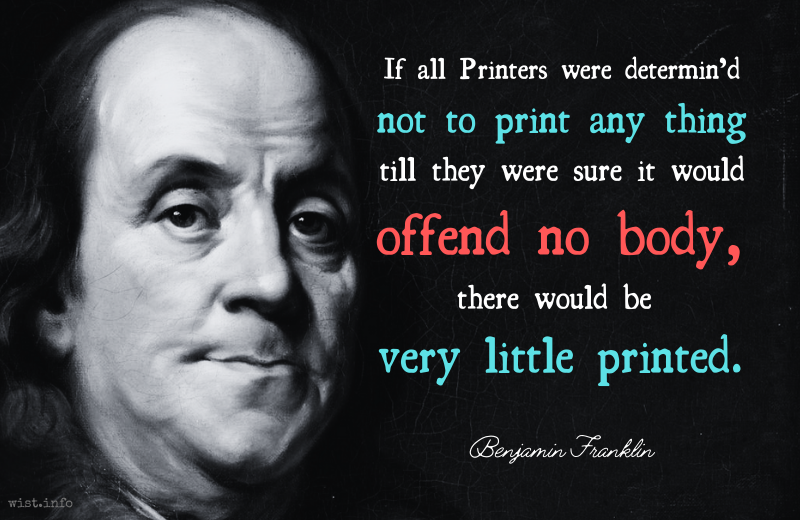The wise man preserves a smooth-tempered self-control.
[πρὸς σοφοῦ γὰρ ἀνδρὸς ἀσκεῖν σώφρον᾽ εὐοργησίαν.]
Euripides (485?-406? BC) Greek tragic dramatist
Bacchæ [Βάκχαι], l. 641ff [Dionysus/Διόνυσος] (405 BC) [tr. Vellacott (1973)]
(Source)
An ironic statement from Dionysus, of how he will keep his calm and temper in the face of Pentheus' disrespectful fury. In very short order, Dionysus is (calmly) setting up Pentheus' self-destruction through the Bacchantes' frenzy.
(Source (Greek)). Alternate translations:
For it behoves the wise
To curb the sallies of outrageous ire.
[tr. Wodhull (1809)]
For it is the part of a wise man to practice restrained good temper.
[tr. Buckley (1850)]
’Tis easy to a wise man To practise self-command.
[tr. Milman (1865)]
For a wise man ever knoweth how to keep his passion down.
[tr. Rogers (1872)]
For ’tis a wise man’s way to school his temper into due control.
[tr. Coleridge (1891)]
For it is the wise man's part to rein his wrath in soberness.
[tr. Way (1898)]
For still are the ways of Wisdom, and her temper trembleth not!
[tr. Murray (1902)]
Wise men know constraint: our passions are controlled.
[tr. Arrowsmith (1960)]
For it is the quality of a wise man to exercise restrained good temper.
[tr. Kirk (1970)]
The secret of life is
Balance, tolerance.
[tr. Soyinka (1973)]
A wise man should practice pure thought and good temper.
[tr. Neuburg (1988)]
A wise man knows restraint. His strength is his detachment.
[tr. Cacoyannis (1982)]
For the wise know gentleness is wisdom.
[tr. Blessington (1993)]
For it is the part of a wise man to employ a controlled and gentle temper.
[tr. Esposito (1998)]
A wise man trains his temper to be good and calm.
[tr. Woodruff (1999)]
Because a man
Who is wise has self-control and gentleness of temper.
[tr. Gibbons/Segal (2000)]
It is a wise man's part to practice gentleness and self-control.
[tr. Kovacs (2002)]
He who would be wise will keep his self-control.
[tr. Teevan (2002)]
That is how wise people work, calmly.
[tr. Theodoridis (2005)]
A wise man is able to hold his good-nature well tempered.
[tr. Valerie (2005)]
After all, a wise man ought to keep his temper.
[tr. Johnston (2008)]
He should learn from me the ways of self-control.
[tr. Robertson (2014)]
Keep calm and carry on, as the wisest say.
[tr. Pauly (2019)]
The wise man has a reasonable temper.
[tr. Behr/Foster (2019)]
A sophos man must practice good temper that is moderate [sōphrōn].
[tr. Buckley/Sens/Nagy (2020)]
Quotations about:
self-restraint
Note not all quotations have been tagged, so Search may find additional quotes on this topic.
Etiquette is about all of human social behavior. Behavior is regulated by law when etiquette breaks down or when the stakes are high — violations of life, limb, property, and so on. Barring that, etiquette is a little social contract we make that we well restrain some of our more provocative impulses in return for living more or less harmoniously in a community.
Judith Martin (b. 1938) American author, journalist, etiquette expert [a.k.a. Miss Manners]
“Polite Company,” interview by Hara Estroff Marano, Psychology Today (1998-03)
(Source)
If all Printers were determin’d not to print any thing till they were sure it would offend no body, there would be very little printed.
Benjamin Franklin (1706-1790) American statesman, scientist, philosopher, aphorist
“Apology for Printers,” Philadelphia Gazette (1731-06-10)
(Source)
A psychologist once said that we know little about the conscience except that it is soluble in alcohol.
Thomas Blackburn (1916-1977) British poet.
“The Contemporary Dream,” The London Review (Jan 1959)
(Source)
Sometimes misattributed to John Mortimer.
The tongue is a wild beast; once let loose it is difficult to chain.
[Es fiera la lengua, que si una vez se suelta, es muy dificultosa de poderse volver a encadenar.]
Baltasar Gracián y Morales (1601-1658) Spanish Jesuit priest, writer, philosopher
The Art of Worldly Wisdom [Oráculo Manual y Arte de Prudencia], § 222 (1647) [tr. Jacobs (1892)]
(Source)
(Source (Spanish)). Alternate translations:
The Tongue is a wild Beast, very hard to be chained again, when once it is let loose. [Flesher ed. (1685)]The tongue is a beast, which once at large, is hard to recapture and to chain.
[tr. Fischer (1937)]
The tongue is a wild animal, and once it breaks loose, it is hard to return to its cage.
[tr. Maurer (1992)]
The whole country wants civility. Why don’t we have it? It doesn’t cost anything. No federal funding, no legislation is involved. One answer is the unwillingness to restrain oneself. Everybody wants other people to be polite to them, but they want the freedom of not having to be polite to others.
Judith Martin (b. 1938) American author, journalist, etiquette expert [a.k.a. Miss Manners]
In “Polite Company,” interview by Hara Estroff Marano, Psychology Today (1998-03)
(Source)
The question I get asked by religious people all the time is, without God, what’s to stop me from raping all I want? And my answer is: I do rape all I want. And the amount I want is zero. And I do murder all I want, and the amount I want is zero. The fact that these people think that if they didn’t have this person watching over them that they would go on killing, raping rampages is the most self-damning thing I can imagine. I don’t want to do that. Right now, without any god, I don’t want to jump across this table and strangle you. I have no desire to strangle you. I have no desire to flip you over and rape you.
Penn Jillette (b. 1955) American stage magician, actor, musician, author
“Penn Jillette Rapes All the Women He Wants To,” Interview by Ron Bennington,Interrobang (30 Apr 2012)
(Source)
I must learn to love the fool in me, the one who feels too much, talks too much, takes too many chances, wins sometimes and loses often, lacks self-control, loves and hates, hurts and gets hurt, promises and breaks promises, laughs and cries. It alone protects me against that utterly self-controlled, masterful tyrant whom I also harbor and who would rob me of human aliveness, humility, and dignity, but for my fool.
The belief that all higher life is governed by the idea of renunciation poisons our moral life by engendering vanity and egotism. But if we take gratification as our ideal we thereby impose on ourselves a program of self-restraint; for if we claim that we are under the necessity of learning all that we can about reality, and that we learn most through pleasure, we must also admit that we are under the necessity of hearing what our fellow-creatures learn about it and of working out a system by which we will curb our pleasures so that they do not interfere with those of others. If, however, we claim that it is by renunciation that we achieve wisdom, we have no logical reason for feeling any disapproval of conditions that thrust pain and deprivation on others.
Rebecca West (1892-1983) British author, journalist, literary critic, travel writer [pseud. for Cicily Isabel Fairfield]
“Pleasure Be Your Guide,” The Nation, “Living Philosophies” series #10 (25 Feb 1939)
(Source)
Adapted into Clifton Fadiman, I Believe: The Personal Philosophies of Certain Eminent Men and Women of Our Time (1952).
Further, a little self-control at the right moment may prevent much subsequent compulsion at the hands of others.
[Daß jedoch ein kleiner, an der rechten Stelle angebrachter Selbstzwang nachmals vielem Zwange von außen vorbeugt.]
Arthur Schopenhauer (1788-1860) German philosopher
Parerga and Paralipomena, Vol. 1, “Aphorisms on the Wisdom of Life [Aphorismen zur Lebensweisheit],” ch. 5 “Counsels and Maxims [Paränesen und Maximen],” § 2.15 (1851) [tr. Saunders (1890)]
(Source)
Source (German). Alternate translation:
Nevertheless, a little self-restraint applied at the right place afterwards prevents much restraint from without.
[tr. Payne (1974), 2.15]
Let this be one invariable rule of your conduct — Never to show the least symptom of resentment which you cannot to a certain degree gratify, but always to smile, where you cannot strike.
It is easier to suppress the first Desire than to satisfy all that follow it.
Benjamin Franklin (1706-1790) American statesman, scientist, philosopher, aphorist
Poor Richard’s Almanack (1751)
(Source)
Included in his summary piece, "The Way to Wealth" (1757).
Believe not all thou hearest, nor speak all thou believest.
Thomas Fuller (1654-1734) English physician, preacher, aphorist, writer
Introductio ad Prudentiam, Vol. 1, # 323 (1725)
(Source)












